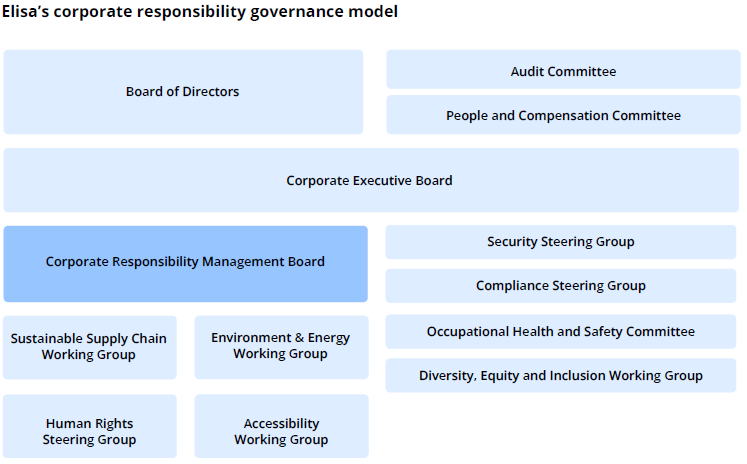Our vision is to be the global benchmark for generating value in communication and digital services. Our strategy focuses on persistent development of the customer experience and quality. Our values and strategy are the foundation of sustainable business. Important areas for us to develop sustainable operations are a secure and safe digital environment, promotion of equality, ethical business code and the actions against climate change.
The established pillars of corporate responsibility are social, financial and environmental responsibility. In addition to these, we have identified digital responsibility as a key part of our business, and review it as a separate sector. We measure our performance with regular surveys for customers, personnel and stakeholders as well as topic-spesific indicators.
We are committed to the principles of the UN Global Compact in order to take responsibility for the sustainable development and good future of our planet. For our commitment, we aim to promote international standards related to working conditions, human rights, the environment and the prevention of corruption in all our countries of operation and in our network of partnerships.

